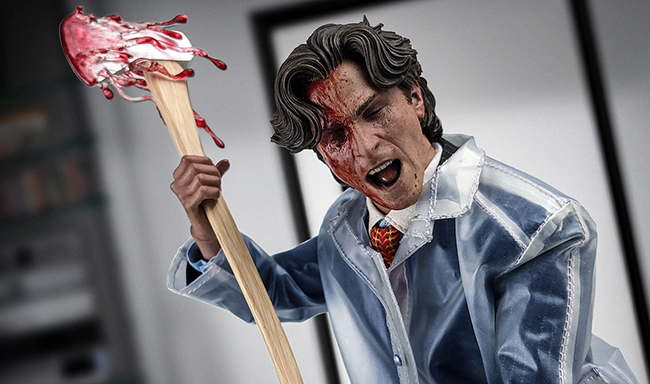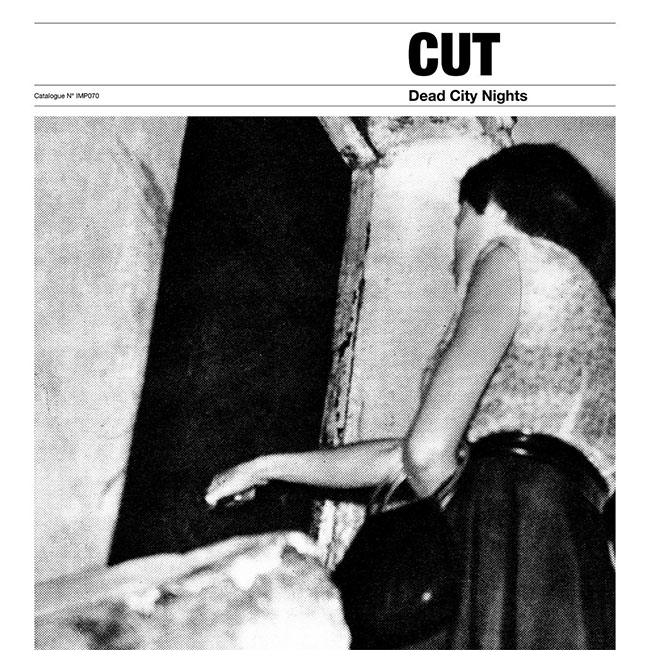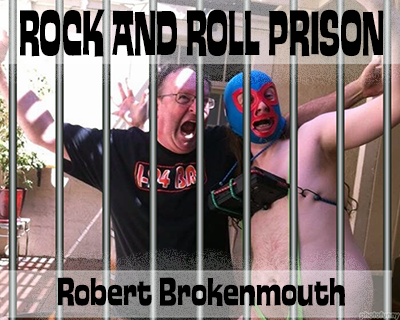The incredulous expressions of our laptopper, Pete, was matched by, “That's the loudest Marduk's ever played in here”, as well as Bob's “I've never played that softly” and Pete's follow-up; “You can lose hearing after a crash, you know.” Ah. Finally, the penny dropped.
And that's probably the reason why my tinnitus has suddenly gone way up after decades of being at the same level.
So it's hearing aids and a pair of musician's earplugs for me; today I had a mould of my ears made by the same company who makes them for the ASO. Yes, there really is a Symphony Orchestra in Adelaide. The plugs aren't cheap, but worth it if it preserves my hearing for the next twenty years (or until I die, whichever comes first).
Which means that, as a hefty chunk of my hearing has gone for good, I have to be jolly careful of my hearing from now on. This means that I can no longer review music by listening to it five times. Once is all they're gonna get.
As you know, a text, or musical piece, or any art, can be perceived in so many different ways.
As, for example, how the author intended as opposed to how the book was interpreted on release, and as the years progress. Let's face it, most books are forgotten (and some may cry, Deservedly so!).
“Catcher in the Rye” is constantly being banned in schools, nominally because of 'bad' language. According to Simon Stern of Middle Tennessee University:
Since the early 1960s, disputes over ‘Catcher in the Rye’ have arisen in more than 70 communities across the United States... School boards and parent-teacher associations have been hostile toward the novel because of Holden’s profanity-laden speech and his sexual adventures following his expulsion from prep school. These include an episode with a pimp and a prostitute (with whom Holden does not have sex) and a visit to an old teacher, Mr. Antolini, who gets drunk and makes what Holden interprets as a sexual advance. In recent years, the novel has also been blamed for promoting alienation among students responsible for high-school shootings.
Stern might also add that in another era, the pillock who shot John Lennon might as well have been clutching a religious book, or wearing a MAGA hat, or clutching Mao's “Red Book”, or “How To Impress Girls By Power-Farting”.
It's not the book, but the berk who obsessively misunderstands it. The author, J.D. Salinger, was interested in how young people handle the transition to adulthood; annoyed with how his novel was received, he decided to continue writing but not be published. Apparently Salinger left quite a large collection of unpublished novels in his lawyer's safe.
I think here's a theme here, that of the “outsider writer”.
Take Nabokov's “Lolita” (1955). Quite apart from causing a rift with his good friend Edmund Wilson (see Alex Beam's“The Feud”), it is a genuinely brilliant novel. However, in context with the real world, which regularly misses the point of pretty much everything, “Lolita” is widely perceived as a term for permissive paedophilia, which wasn't Nabokov's intention.

Brett Easton Ellis' “American Psycho” (1991) is another book which, though well-written with roller-coaster humour versus ghastly drops into troughs of horror, seemed determined to shock. As a text, like “Lolita”, unless you're reading the book to study, it doesn't much bear rereading. In a wider context the book was simply bought by perverts and similar dickheads for much the same reason that “Lolita” was - for the dirty bits.
Another such outsider writer is Poppy Z. Brite, whose “Exquisite Corpse” (1996) borrows from books on serial killers Dennis Nilsen and Jeffrey Dahmer, as well as Anne Rice's “Vampire” series, 'Lolita', 'American Psycho' - and J.G. Ballard's 'Crash'.
I found 'Exquisite Corpse' to be more amusing than 'Lolita' and 'American Psycho', and more unpleasantly erotic than both. Upon reading it for the first time you marvel that no film has been made, if not a series. That said, the book's deliberate sexualising of dismemberment and torture seems to have slid beneath the cracks (perhaps the clots of perverts and dickheads haven't discovered it yet).
I think it's inescapable that all of the above authors clearly wanted to make their mark on the world. That each author found their reality dreary and unsatisfying. After all, “cadavre exquis” (Latin for “exquisite corpse”) was an approach to drawing the surrealist artists used, enabling them to create bizarre and intuitive pieces; each artist would take a turn adding sections to the drawing.
The piece, the text itself is what it is. Until someone comes along and reinterprets it for themselves. And we all do that to every book, piece of art or music or whatever. Don't know if you ever saw the episode of “One Foot in the Grave” where the Meldrews acquire the very-used floor of a pigeon cage under the impression it is modern art - and then present it to their modern art-loving neighbour?

Which brings me, rather abruptly to Italian outfit Cut, and their seventh LP, “Dead City Nights” (Improved Sequence Records). Short story - it's great, rated four and a half bottles easy.
Their Bandcamp burble says:
If you’ve not witnessed CUT storming on stage in the last 25 years I’m not sure you’ve witnessed rock’n’roll in its purest form, an onslaught of concrete punk, garage belters and the necessary dose of sleaze and bravado when the song calls for it. Two guitars, one drum kit, that’s been their formula forever, low-end/high-end, angular, in-yer-face on paper but subtle in execution, confrontational at first but with a heart that looms large, soulful yet fierce. ‘Dead City Nights’ is no exception and maybe marks their highest achievement, chock-full of signature bangers and the usual dose of irony. Carlo, Ferruccio and Tony are back it, move out of their way!
See, Cut have this rock'n'roll thing down just fine, plenty of variation within the songs - you'll hear hints of plenty of other bands, but that's not the point. Cut come at you in a rush of intent, packing in more hooks, twists, turns and mood swings than a reformed boxer pretending to be a monk. At a little under five and a half minutes, the title track is the longest and it's a bloody magnificent, brooding chunk of tension.
There's a reason this outfit has “shared stages” with characters like Iggy & The Stooges, Violent Femmes, Jim Jones, The Hives and Guitar Wolf. If you've not heard of them, or heard them, start here with “Dead City Nights” and get on with it. There's a white vinyl edition as well, for elderly saddoes like us.

 It was at band practice with Smallpox Confidential about four or so weeks ago that I discovered the car crash I had been in had walloped me so damn hard that apart from the soft tissue damage and concussion, I'd also lost a significant chunk of hearing.
It was at band practice with Smallpox Confidential about four or so weeks ago that I discovered the car crash I had been in had walloped me so damn hard that apart from the soft tissue damage and concussion, I'd also lost a significant chunk of hearing. 